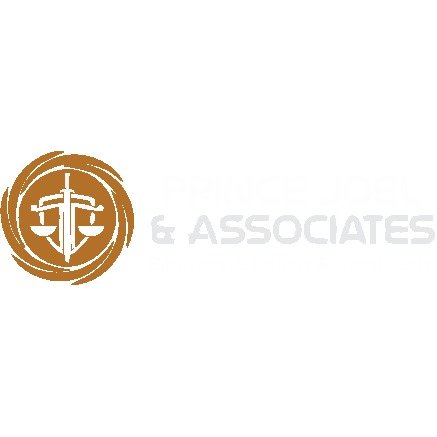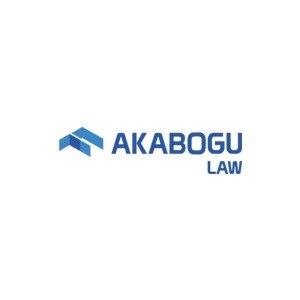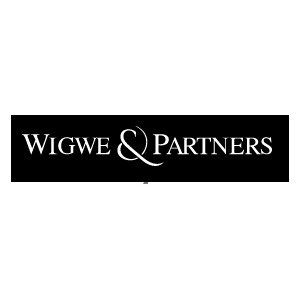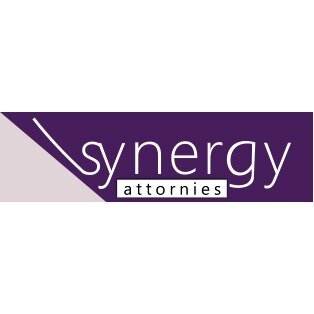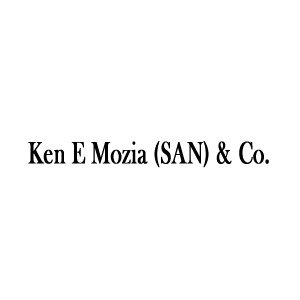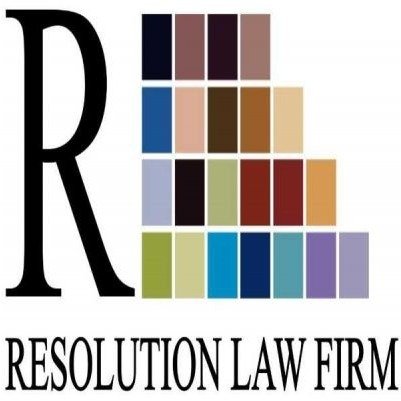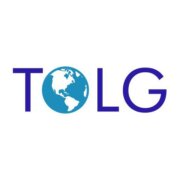Best Financial Services Regulation Lawyers in Lekki
Share your needs with us, get contacted by law firms.
Free. Takes 2 min.
List of the best lawyers in Lekki, Nigeria
About Financial Services Regulation Law in Lekki, Nigeria
Financial Services Regulation in Lekki, Nigeria falls under the broader financial regulatory framework of the country, which is designed to oversee financial institutions, safeguard consumers, and maintain the integrity of financial markets. Lekki, as a burgeoning hub in Lagos State, reflects the dynamic financial landscape with numerous banks, investment firms, and fintech companies. The regulatory landscape is primarily governed by national regulatory bodies like the Central Bank of Nigeria (CBN) and the Securities and Exchange Commission (SEC), which enforce standards and ensure compliance to promote stability and trust in the financial system.
Why You May Need a Lawyer
There are several scenarios in which engaging a lawyer experienced in Financial Services Regulation may be necessary:
- Setting up a financial services company and needing advice on regulatory compliance.
- Facing regulatory investigations or enforcement actions from entities like the CBN or SEC.
- Dealing with disputes related to financial products or services.
- Needing guidance on licensing and operational requirements for financial businesses.
- Seeking legal representation in court cases involving financial regulations.
- Requiring counsel on mergers, acquisitions, or other corporate transactions within the financial sector.
- Addressing consumer complaints related to banking or financial services.
Local Laws Overview
The key aspects of local laws relevant to Financial Services Regulation in Lekki include:
- The Central Bank of Nigeria Act: Establishes the authority of the CBN in regulating the banking industry, ensuring liquidity and financial stability.
- Bank and Other Financial Institutions Act (BOFIA): Governs the operations of banks and financial institutions, focusing on licensing, corporate governance, and consumer protection.
- Securities and Exchange Commission Regulations: Oversees the capital market, including stock exchanges, investment schemes, and securities transactions.
- National Insurance Commission (NAICOM) Regulations: Regulates the insurance sector to protect policyholders and ensure fair market conduct.
- The Investments and Securities Act: Provides a framework for the regulation of securities, investor protection, and the management of capital markets.
Frequently Asked Questions
What is the primary regulatory body for financial services in Nigeria?
The primary regulatory bodies are the Central Bank of Nigeria (CBN) for banks and monetary policy, and the Securities and Exchange Commission (SEC) for capital markets.
Do fintech companies in Lekki have specific regulatory requirements?
Yes, fintech companies need to comply with guidelines set by the CBN and may require specific licenses depending on their business model, such as payment processing or digital lending.
What do I need to consider when starting a financial services business in Lekki?
Consider the legal requirements for registration, licensing, compliance with CBN guidelines, and financial reporting obligations.
Can I handle a financial services regulatory issue without a lawyer?
While it is possible, having a lawyer provides expert guidance on compliance, mitigates risks, and prepares for possible disputes.
What should I do if I receive a regulatory notice?
Consult with a legal expert immediately to understand the implications, prepare a response, and ensure that your rights are protected.
How does the Nigerian legal system handle financial disputes?
Disputes can be resolved through litigation in the courts or alternative dispute resolution methods such as arbitration or mediation.
Are there consumer protection laws for financial services in Nigeria?
Yes, there are consumer protection laws aimed at ensuring transparency, fairness, and recourse for grievances in financial transactions.
What penalties can be imposed for non-compliance with financial regulations?
Penalties may include fines, suspension of business operations, or revocation of licenses, depending on the severity of the non-compliance.
How can I ensure my financial services business remains compliant?
Engage in regular compliance audits, stay updated on regulatory changes, and seek legal counsel to address specific concerns.
What role does the SEC play in the Nigerian financial system?
The SEC regulates the securities market, protects investors, and ensures fairness and transparency in capital market transactions.
Additional Resources
For further assistance, you may consider reaching out to the following organizations:
- Central Bank of Nigeria (CBN): For regulations pertaining to banking and monetary policies.
- Securities and Exchange Commission (SEC): For information on capital market regulations and investor protection.
- National Insurance Commission (NAICOM): For guidance on insurance regulations and compliance.
- Nigerian Communications Commission (NCC): For issues related to fintech within telecommunications.
- Consumer Protection Council (CPC): For consumer rights related to financial services.
Next Steps
If you require legal assistance in Financial Services Regulation, consider the following steps:
- Identify your specific legal needs and potential issues that require attention.
- Research and engage a competent lawyer or law firm with expertise in financial services regulation law in Lekki.
- Prepare all relevant documents and information to facilitate a comprehensive legal consultation.
- Follow the legal advice provided to ensure compliance and address any regulatory concerns.
Taking these steps will help ensure that you navigate the complexities of financial services regulation effectively and protect your interests in Lekki, Nigeria.
Lawzana helps you find the best lawyers and law firms in Lekki through a curated and pre-screened list of qualified legal professionals. Our platform offers rankings and detailed profiles of attorneys and law firms, allowing you to compare based on practice areas, including Financial Services Regulation, experience, and client feedback.
Each profile includes a description of the firm's areas of practice, client reviews, team members and partners, year of establishment, spoken languages, office locations, contact information, social media presence, and any published articles or resources. Most firms on our platform speak English and are experienced in both local and international legal matters.
Get a quote from top-rated law firms in Lekki, Nigeria — quickly, securely, and without unnecessary hassle.
Disclaimer:
The information provided on this page is for general informational purposes only and does not constitute legal advice. While we strive to ensure the accuracy and relevance of the content, legal information may change over time, and interpretations of the law can vary. You should always consult with a qualified legal professional for advice specific to your situation.
We disclaim all liability for actions taken or not taken based on the content of this page. If you believe any information is incorrect or outdated, please contact us, and we will review and update it where appropriate.



